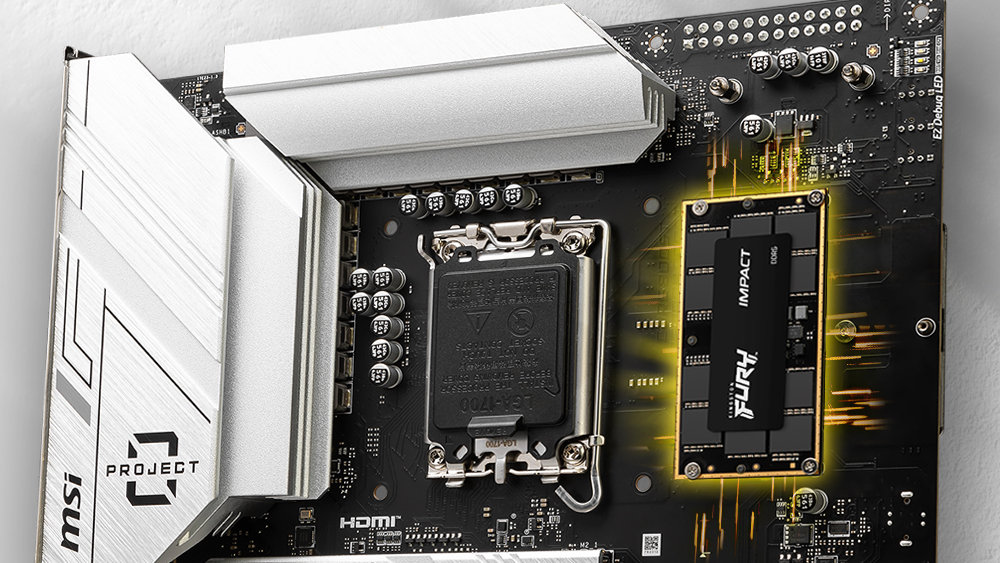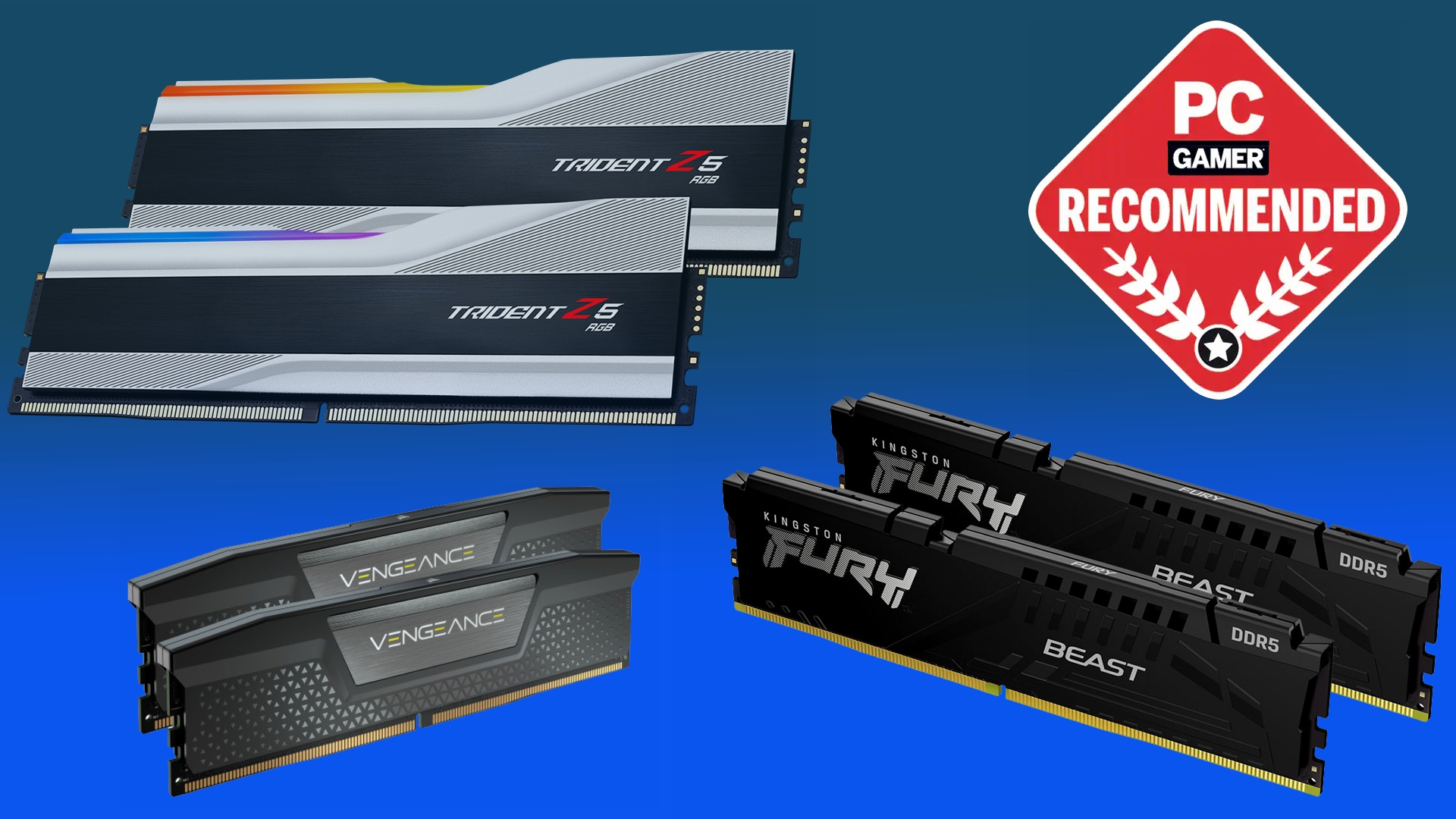
MSI has teased a concept Z790 motherboard that features CAMM2 memory. The board is called the Project Zero Plus. We reviewed a system with the B650 Project Zero a little while back. It's main feature us that all the major connectors are relocated to the rear of the motherboard, including the power connectors, system headers and SATA ports, but this new concept with CAMM2 memory something altogether different.
MSI and @kingstontech are previewing the next revolution in memory design, the DDR5 CAMM2. Featured on a Z790 PROJECT ZERO PLUS, the Kingston FURY Impact DDR5 CAMM2 prototype module demonstrates the compact size, thin profile, and potential OC performance.#MSIxComputex2024 pic.twitter.com/vAhVB12zrIMay 23, 2024
CAMM stands for Compression Attached Memory Module. It's a new standard designed to replace SO-DIMM memory in laptops. Its advantage is that it incorporates what would normally be a dual-channel configuration into a single module, therefore saving space. This space saving isn't so much in the X and Y dimensions, but the Z dimension, meaning it's well suited to thin form factors.
There is the question of why MSI and Kingston would spend the resources to come up with this concept. I can see it being beneficial for large CPU coolers, by eliminating RAM compatibility concerns. It would also create the possibility for some creative use of the space atop the module. More RGB? Cough cough…
CAMM2 offers an optimized trace layout, which could be beneficial as DDR5 speeds increase towards the 10,000 MT/s mark. DDR6 memory is also in development, and given the sensitivities of DDR5 trace design, some kind of new standard may actually be necessary. It also supports LPDDR5X, which is already scaling to levels well beyond the limitations of SO-DIMMs.

Best RAM for gaming: the latest and greatest
Desktops with CAMM2 could allow laptops and desktops to use interchangeable RAM. Perhaps you can 'retire' a 32GB module from your desktop to a laptop, giving it an upgrade.
Such questions have little relevance at this point in time. Laptops have increasingly been adopting soldered RAM, so whether CAMM2 memory even takes off in the laptop space—let alone desktops—remains an open question.
Whatever the future holds for CAMM2 memory, it's going to be interesting to see how it performs in a desktop environment as desktop memory typically features lower latencies with more aggressive timings. On paper though, there's little reason why a CAMM2 implementation couldn't at least match a dual channel DDR5 DIMM setup.
We don't know anything specific about the implementation itself, such as the speed, timings, the chips used, capacity, power, or if there are any heat concerns. And, the big unknown is how much a CAMM2 module would cost compared to an equivalent dual channel DDR5 kit.
We'll know more at Computex in a few days. Several members of the PC Gamer hardware team will be on the ground, and this is one of those concepts that is genuinely interesting. Is it a glimpse at the future of desktop memory? Or an after hours project by some of MSI's enterprising engineers? We hope to find out soon.







